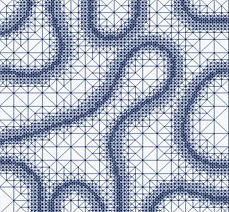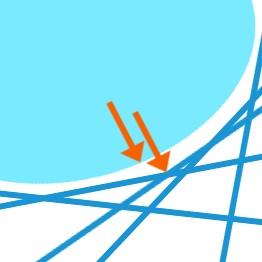Phase 1 of the SPP1962 ran from October 2016 to October 2019 and has been superseded by the current phase.
List of projects in Phase 1
-
P01Approximation of Monge-Kantorovich Problems
-
P02Coupling Hyperbolic PDEs with Switched DAEs: Analysis, Numerics and Application to Blood Flow Models
-
P03Numerical Methods for Diagnosis and Therapy Design of Cerebral Palsy by Bilevel Optimal Control of Constrained Biomechanical Multi-Body Systems
-
P04Parameter Identification in Models With Sharp Phase Transitions
-
P05Multiobjective Optimal Control of Partial Differential Equations Using Reduced-Order Modeling
-
P06Analysis and Solution Methods for Bilevel Optimal Control Problems
-
P07Identification of Energies from Observations of Evolutions
-
P08A Calculus for Non-Smooth Shape Optimization with Applications to Geometric Inverse Problems
-
P09Optimal Control of Dissipative Solids: Viscosity Limits and Non-Smooth Algorithms
-
P10Generalized Nash Equilibrium Problems with Partial Differential Operators: Theory, Algorithms, and Risk Aversion
-
P11Optimal Control of Elliptic and Parabolic Quasi-Variational Inequalities
-
P12Coordination Funds
-
P13Simulation and Control of a Nonsmooth Cahn-Hilliard Navier–Stokes System with Variable Fluid Densities
-
P14Algorithms for Quasi-Variational Inequalities in Infinite-Dimensional Spaces
-
P15Non-smooth Methods for Complementarity Formulations of Switched Advection-Diffusion Processes
-
P16Optimal Control of Variational Inequalities of the Second Kind with Application to Yield Stress Fluids
-
P17Optimizing Fracture Propagation Using a Phase-Field Approach
-
P18Optimal Control of Static Contact in Finite Strain Elasticity
-
P19Shape Optimization for Maxwell's Equations Including Hysteresis Effects in the Material Laws
-
P20Optimizing Variational Inequalities on Shape Manifolds
-
P21Multi-Leader-Follower Games in Function Space
-
P22Stress-Based Methods for Variational Inequalities in Solid Mechanics: Finite Element Discretization and Solution by Hierarchical Optimization
-
P23Optimization methods for mathematical programs with equilibrium constraints in function spaces based on adaptive error control and reduced order or low rank tensor approximations
-
P24Optimization of Non-smooth Hyperbolic Maxwell's Equations in Type-II Superconductivity Based on the Bean Critical State Model
Communicating Research Areas
-

Modeling, problem analysis, algorithm design and convergence analysis
The focus of this area is on the development and analysis of genuinely non-smooth models in the sciences in order to properly capture real-world effects and to avoid comprising smoothing approaches. In simulation and optimization this requires to advance set-valued analysis and the design of robust algorithms for non-smooth problems.
-

Realization of algorithms, adaptive discretization and model reduction
As the target applications of this SPP involve non-smooth structures and partial differential operators, the discretization of the associated problems and robust error estimation are important issues to be address, and proper model-reduction techniques need to be developed.
-

Incorporation of parameter dependencies and robustness
In many applications the robustness of solutions with respect to a given parameter range (uncertainty set) is highly relevant. Correspondingly, in this research area of the SPP, bi- or multilevel optimization approaches will be studied in order to robustify problem solutions against uncertain parameters.

